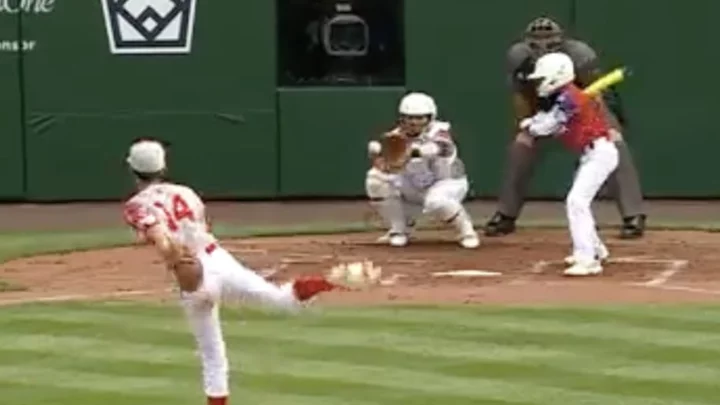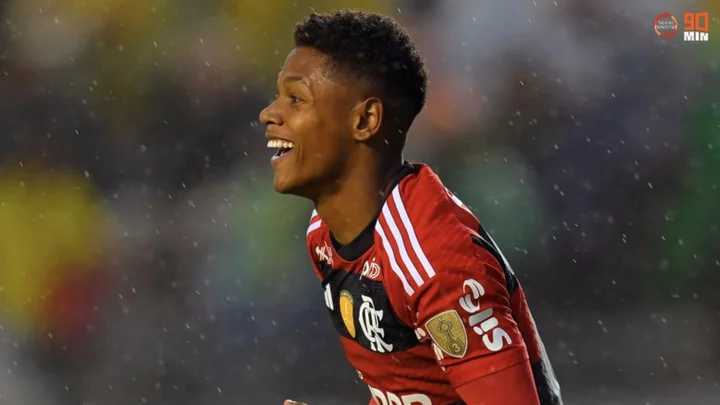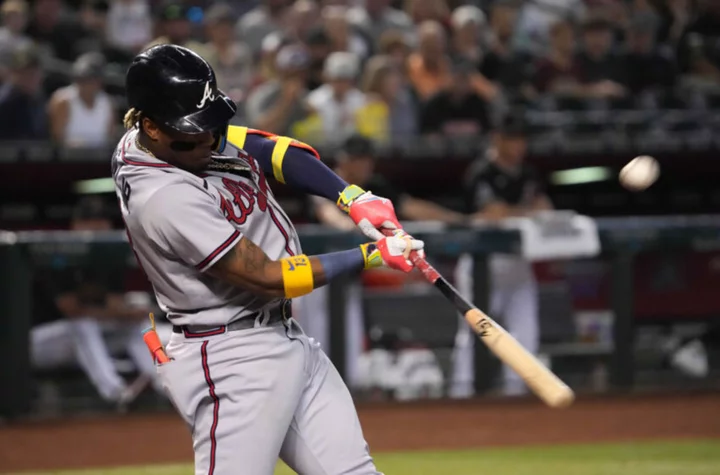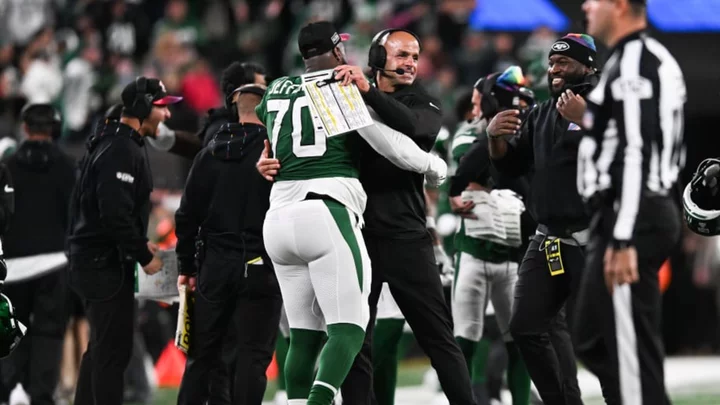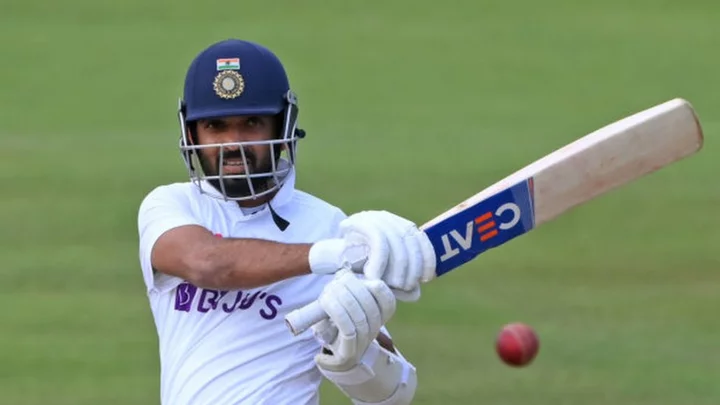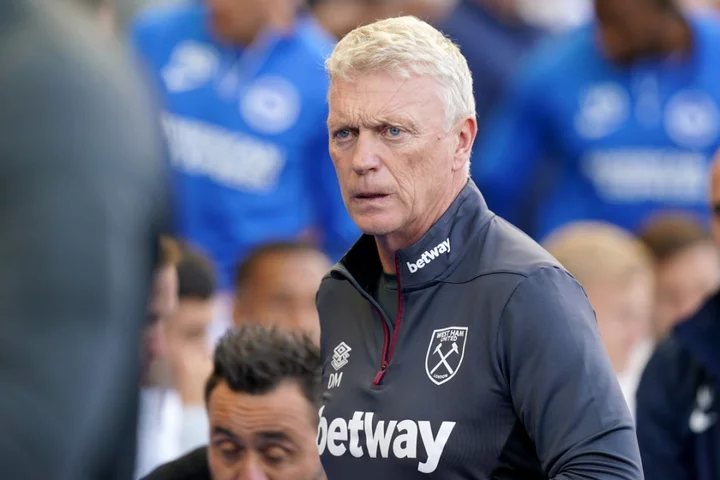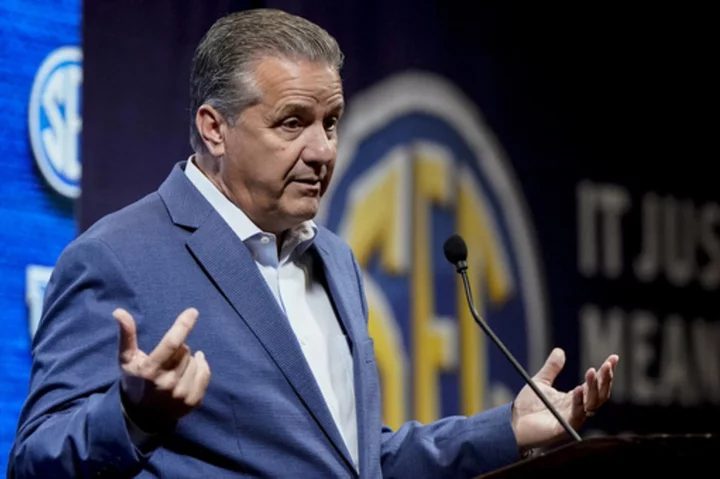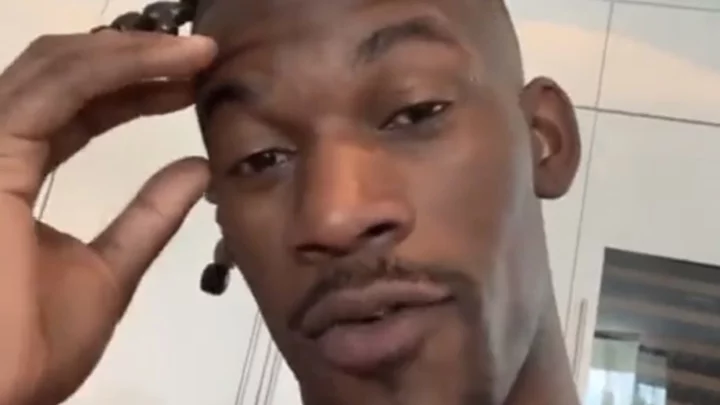Romelu Lukaku has another harrowing moment to ponder after Inter fell short
When Edin Dzeko’s number was up and Romelu Lukaku took the field, the stage was set for the perfect conclusion to Chelsea’s car crash of a season. If Lukaku, the man a team who developed a chronic aversion to scoring, delivered the winning goal in the Champions League, it would be irrefutable proof of Todd Boehly’s anti-Midas touch. Yet there were colliding forces at play and Manchester City duly benefitted. Lukaku’s previous European final for Inter brought an own goal in defeat to Sevilla in the 2020 Europa League. His 2022-23 may forever be defined by his traumatic second half against Croatia, by the four glaring misses that brought Belgium’s golden generation to an end and eliminated his side from the World Cup. But there was a largely luckless sequel. Inadvertently, he blocked Federico Dimarco’s second header after the wing-back struck the bar. When presented with a glorious opportunity, five yards out, he headed against Ederson’s left knee. A player with 351 career goals risks being defined by the ones he didn’t score. But, in fairness to Lukaku, if one man won City their maiden Champions League, it was not him, but Ederson. The Brazilian’s passing can feel more notable than his shot-stopping and he rarely features near the top of the charts for save percentage but he produced three superb stops: first Lautaro Martinez was denied then Lukaku and finally, deep into injury-time, Robin Gosens. There were echoes of a compatriot, Alisson, and the 2019 final: scarcely required in the first three-quarters of the game, he was outstanding at the end. “You have to be lucky. Ederson or they miss it, they could draw,” Pep Guardiola reflected. “This competition is a coin.” Champions League finals can often leave the losers lamenting what might have been. In Inter’s case, there are added reasons to wonder, perhaps for years in the wilderness. “There are no words that can handle the pain but they are the second best team in Europe and that is incredible,” said Guardiola, citing City’s defeat to Chelsea in 2021 to empathise. Yet City may have had that status then; Inter were Champions League runners-up this season but third in Serie A. By some criteria – talent, budget, expectation – they might not be in the continent’s top 10 teams. So this had the feel of a one-off and an emphatic victory in the xG battle showed the quality of their openings, even if pragmatists may care little about such statistics. But if there is never a guarantee teams will return to such occasions, others have been likelier to than this Inter. In 11 previous seasons, they had not even reached the quarter-finals of this competition. An unfancied team overachieved, aided by a favourable draw. Their financial problems mean they will have to continue to beg, borrow and bargain for signings. They may face battles to retain Martinez and Nicolo Barella, two of their most valuable assets. Their starting 111 cost £113 million, less than City paid for Jack Grealish and Manuel Akanji alone. Age counts against them: the 35-year-old Francesco Acerbi and the 37-year-old Dzeko offered improbable tales of unexpected progress at points when some of their peers have retired. In all probability, neither will win the Champions League. The old were joined by the old-fashioned. There were points where Inter appeared to be trying to play the 2003 Champions League final in 2023; their seeming passiveness baffled City, their static approach confusing them. Among elderly strikers, manager Simone Inzaghi seemed to cover more ground than Dzeko, the antidote to gegenpressing, standing still rather than hassling City’s defenders. Even when it was walking pace, Dzeko walked less than anyone else. And yet, with their inactivity, Inter exerted a strange kind of control and when Rodri scored, they suddenly started to create: largely from set-pieces and crosses but in a way that showed the merits of Inzaghi’s seemingly antiquated 3-5-2 formation, of having wing-backs who could get forward and twin strikers in the box. Lukaku’s misses notwithstanding, perhaps he should have started. Otherwise, Inter may have been the best version of themselves: organised, tactically astute, confident in their own gameplan. It was an advertisement for Italian strategy, for ignoring the fashions elsewhere in football; Inter looked a team who had plotted a path through the knockout stages with expert nous. Relatively few City players performed anywhere near their best – perhaps only Ederson, John Stones and Nathan Ake, though Kevin de Bruyne created two chances with incisive passes before his early departure – while the majority of those to excel were Nerazzurri. Alessandro Bastoni, Marcelo Brozovic, Dimarco and Barella were all terrific. Andre Onana made a fine first-half save from Erling Haaland. It took a telling deflection to unlock them: not from Rodri’s shot but Bernardo Silva’s cross, which struck Acerbi and fell obligingly for Rodri. For Inter, it might be the hard-luck tale without another chapter. For Inzaghi, reaching the Champions League final on a lesser budget may be a greater feat than Antonio Conte’s unaffordable Scudetto. He has had to be resourceful. He almost reaped the ultimate reward. “I wouldn’t trade these players for anyone and today the whole world saw why,” Inzaghi said. “We conceded little against a very strong team. We have many regrets, but we must be proud.” But pride and regrets could go hand in hand. Inter could have pulled off the greatest shock in a Champions League final since 2005, since it was last in Istanbul. And instead, Lukaku has more harrowing moments to relive. Read More Watch live: Manchester City leave Istanbul after Champions League win Pep Guardiola ended 12 years of hurt thanks to masterful midfield reinvention Manchester City treble-winners can be judged among the greats – Pep Guardiola
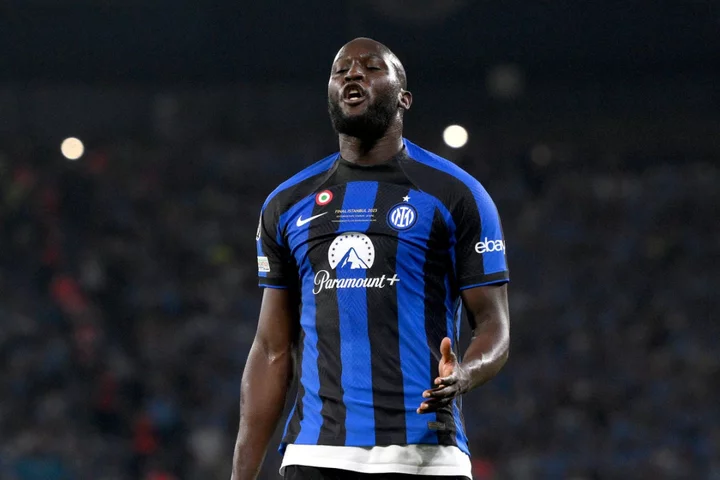
When Edin Dzeko’s number was up and Romelu Lukaku took the field, the stage was set for the perfect conclusion to Chelsea’s car crash of a season. If Lukaku, the man a team who developed a chronic aversion to scoring, delivered the winning goal in the Champions League, it would be irrefutable proof of Todd Boehly’s anti-Midas touch.
Yet there were colliding forces at play and Manchester City duly benefitted. Lukaku’s previous European final for Inter brought an own goal in defeat to Sevilla in the 2020 Europa League. His 2022-23 may forever be defined by his traumatic second half against Croatia, by the four glaring misses that brought Belgium’s golden generation to an end and eliminated his side from the World Cup. But there was a largely luckless sequel. Inadvertently, he blocked Federico Dimarco’s second header after the wing-back struck the bar. When presented with a glorious opportunity, five yards out, he headed against Ederson’s left knee. A player with 351 career goals risks being defined by the ones he didn’t score.
But, in fairness to Lukaku, if one man won City their maiden Champions League, it was not him, but Ederson. The Brazilian’s passing can feel more notable than his shot-stopping and he rarely features near the top of the charts for save percentage but he produced three superb stops: first Lautaro Martinez was denied then Lukaku and finally, deep into injury-time, Robin Gosens. There were echoes of a compatriot, Alisson, and the 2019 final: scarcely required in the first three-quarters of the game, he was outstanding at the end. “You have to be lucky. Ederson or they miss it, they could draw,” Pep Guardiola reflected. “This competition is a coin.”
Champions League finals can often leave the losers lamenting what might have been. In Inter’s case, there are added reasons to wonder, perhaps for years in the wilderness. “There are no words that can handle the pain but they are the second best team in Europe and that is incredible,” said Guardiola, citing City’s defeat to Chelsea in 2021 to empathise. Yet City may have had that status then; Inter were Champions League runners-up this season but third in Serie A. By some criteria – talent, budget, expectation – they might not be in the continent’s top 10 teams.
So this had the feel of a one-off and an emphatic victory in the xG battle showed the quality of their openings, even if pragmatists may care little about such statistics. But if there is never a guarantee teams will return to such occasions, others have been likelier to than this Inter. In 11 previous seasons, they had not even reached the quarter-finals of this competition. An unfancied team overachieved, aided by a favourable draw. Their financial problems mean they will have to continue to beg, borrow and bargain for signings. They may face battles to retain Martinez and Nicolo Barella, two of their most valuable assets. Their starting 111 cost £113 million, less than City paid for Jack Grealish and Manuel Akanji alone. Age counts against them: the 35-year-old Francesco Acerbi and the 37-year-old Dzeko offered improbable tales of unexpected progress at points when some of their peers have retired. In all probability, neither will win the Champions League.
The old were joined by the old-fashioned. There were points where Inter appeared to be trying to play the 2003 Champions League final in 2023; their seeming passiveness baffled City, their static approach confusing them. Among elderly strikers, manager Simone Inzaghi seemed to cover more ground than Dzeko, the antidote to gegenpressing, standing still rather than hassling City’s defenders. Even when it was walking pace, Dzeko walked less than anyone else. And yet, with their inactivity, Inter exerted a strange kind of control and when Rodri scored, they suddenly started to create: largely from set-pieces and crosses but in a way that showed the merits of Inzaghi’s seemingly antiquated 3-5-2 formation, of having wing-backs who could get forward and twin strikers in the box.
Lukaku’s misses notwithstanding, perhaps he should have started. Otherwise, Inter may have been the best version of themselves: organised, tactically astute, confident in their own gameplan. It was an advertisement for Italian strategy, for ignoring the fashions elsewhere in football; Inter looked a team who had plotted a path through the knockout stages with expert nous.
Relatively few City players performed anywhere near their best – perhaps only Ederson, John Stones and Nathan Ake, though Kevin de Bruyne created two chances with incisive passes before his early departure – while the majority of those to excel were Nerazzurri. Alessandro Bastoni, Marcelo Brozovic, Dimarco and Barella were all terrific. Andre Onana made a fine first-half save from Erling Haaland. It took a telling deflection to unlock them: not from Rodri’s shot but Bernardo Silva’s cross, which struck Acerbi and fell obligingly for Rodri. For Inter, it might be the hard-luck tale without another chapter.
For Inzaghi, reaching the Champions League final on a lesser budget may be a greater feat than Antonio Conte’s unaffordable Scudetto. He has had to be resourceful. He almost reaped the ultimate reward. “I wouldn’t trade these players for anyone and today the whole world saw why,” Inzaghi said. “We conceded little against a very strong team. We have many regrets, but we must be proud.” But pride and regrets could go hand in hand. Inter could have pulled off the greatest shock in a Champions League final since 2005, since it was last in Istanbul. And instead, Lukaku has more harrowing moments to relive.
Read More
Watch live: Manchester City leave Istanbul after Champions League win
Pep Guardiola ended 12 years of hurt thanks to masterful midfield reinvention
Manchester City treble-winners can be judged among the greats – Pep Guardiola


